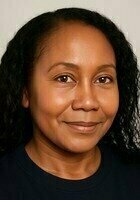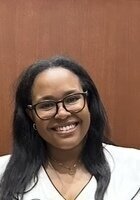All CPA Auditing and Attestation (AUD) Resources
Example Questions
Example Question #2 : Ethics & Professional Responsibility
Under the “Scope and nature of services principle; a member is required to:
monitor other members
maintain quality of control procedures
be annually reviewed by the AICPA
offer services on request
maintain quality of control procedures
Under the AICPA code of professional conduct, the “scope and nature of services” principle requires that practitioners work in firms that maintain appropriate quality control procedures.
Example Question #3 : Ethics & Professional Responsibility
An independent auditor must have which of the following?
Technical training that is adequate to meet the requirements of a professional
A pre-existing and well informed point of view with respect to the audit
Experience in taxation that is sufficient to comply with GAAS
A background in many different disciplines
Technical training that is adequate to meet the requirements of a professional
The General Standards Rule of the AICPA Code of Professional Conduct states that the auditor must have adequate technical training as an auditor.
Example Question #5 : Ethics & Professional Responsibility
A CPA who is not in public practice is obligated to follow which of the following rules of conduct?
Independence
Contingent fees
Integrity and objectivity
Commissions
Integrity and objectivity
A CPA must maintain objectivity and integrity in the performance of any professional service.
Example Question #4 : Ethics & Professional Responsibility
A member of the AICPA performing an audit, review, compilation, or other professional services must abide by:
All of the answer choices are correct
Professional competence
PCAOB procedures
Strict audit procedures
Professional competence
PCAOB procedures are to be obeyed for public company engagements. In addition to professional competence, there is due professional care, planning and supervision, and sufficient relevant data.
Example Question #4 : Ethics & Professional Responsibility
In order to maintain independence, a partner, principal, shareholder or professional employee of a firm may not hold more than ____% in a client's stock.
1%
5%
25%
10%
5%
According to PCAOB guidelines: “During the period of the professional engagement, a partner or professional employee of the firm, his or her immediate family, or any group of such persons acting together owned more than 5 percent of a client’s outstanding equity securities or other ownership interests.”
Example Question #5 : Ethics & Professional Responsibility
Independence is impaired by:
employment relationship with the client
Association membership with client management
Members in the same alumni association with the CEO of a client
Banking in an institution used by the client
employment relationship with the client
Under AICPA and PCAOB guidelines, independence is impaired by an employment arrangement with a client. Under ET Section 100: Participated on the attest engagement team or was an individual in a position to influence the attest engagement for the client when the attest engagement covers any period that includes his or her former employment or association with that client.”
Example Question #6 : Ethics & Professional Responsibility
Ron Johnson is the lead audit partner on the engagement with Abco, Inc. (a public company). Mr. Johnson must be rotated from the engagement every:
10 Years
Never
Five Years
Seven Years
Five Years
Under PCAOB standards for public companies, an audit lead is required to rotate every five years. The guidance provided by the PCAOB includes the following: “Auditors have many rigorous standards that must be upheld that are supposed to create independence from the companies they audit. One of the most important is the mandatory lead rotation every five years. This is a much more cost-effective way of increasing independence between auditors and clients. When the lead auditor changes, they must “start from scratch” with their client, which means no longstanding relationship is intact. In addition, the audit firm will have to spend less time on the audit than if it were an entirely new company, which saves massive amounts of time, and most importantly, money.”
Example Question #7 : Ethics & Professional Responsibility
An issuer may hire an employee of a registered public accounting firm who served on the audit engagement team within the previous year for which of the following positions?
CFO
Controller
Staff accountant
CEO
Staff accountant
SOX and SEC rules prohibit an accounting firm from auditing an issuer's financial statements if certain members of management of the issuer had been members of the firm's audit engagement team within the one year period preceding the beginning of audit procedures. These positions include CEO, CFO, and controller.
Example Question #113 : Cpa Auditing And Attestation (Aud)
Under the SOX 2002 provisions, registered public accounting firms are required to prepare and maintain audit work papers and other info related to any audit for a period of:
3 years
5 years
7 years
1 year
7 years
Registered firms are required to maintain these work papers for a period of 7 years.
Example Question #114 : Cpa Auditing And Attestation (Aud)
Of the following audit clients, which client's engagement would have to be conducted under SEC or PCAOB regulations and procedures?
A family owned and run electrician business
A corporation listed on the New York Stock Exchange
ABC LP
A governmental entity
A corporation listed on the New York Stock Exchange
Only a public company or issuer would have to obey these procedures.
All CPA Auditing and Attestation (AUD) Resources




